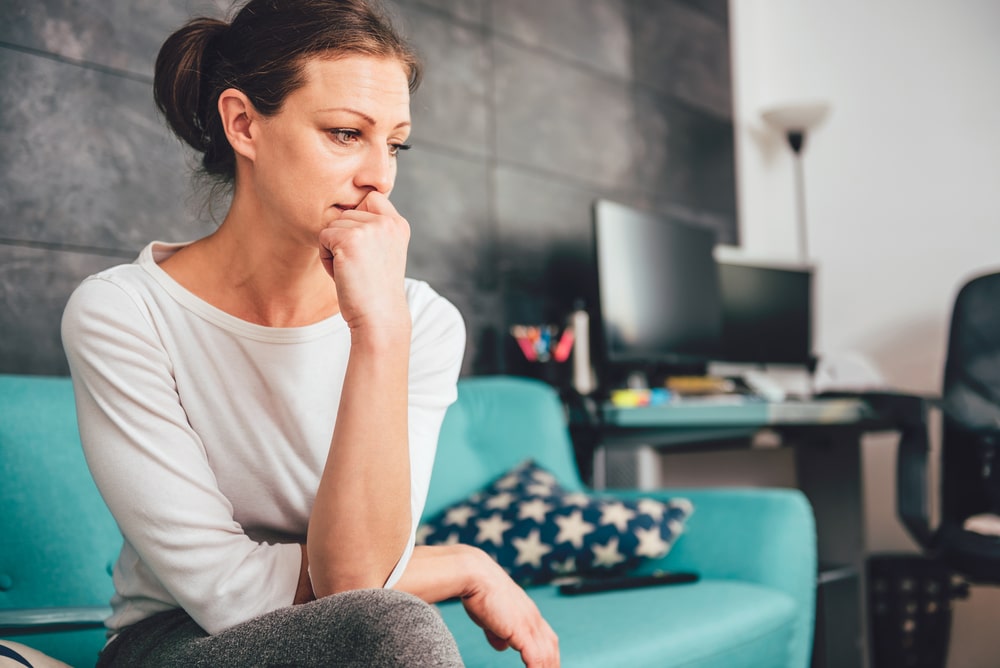Anxiety is the body’s natural response to stress. As is defined by Oxford English Dictionary, anxiety is “a feeling of worry, nervousness, or unease, typically about an imminent event or something with an uncertain outcome.” The swift arrival of the extraordinarily contagious novel coronavirus (SARS-CoV-2), also known as COVID-19, quickly plunged all corners of the world into a universal pandemic. In efforts to slow the spread of COVID-19, America implemented strict stay-at-home orders for all non-essential workers, closed schools, prohibited in-restaurant dining, shuttered movie theaters, museums, sports and exercise clubs, and more. As the guidelines have evolved to support a new norm, and we continue to move toward a post-pandemic lifestyle, people are left with the mental and emotional fallout from surviving these social distance mandates for extended periods of time. The anxiety and fear surrounding contracting COVID-19, including the extensive list of severe short-term effects as well as the unknown long-term effects remain deeply ingrained in the collective consciousness. If you find yourself struggling with anxiety, consider the following suggestions, provided by the Centers for Disease Control and Prevention (CDC):
- Take care of your body: Practicing healthy habits can reduce anxiety and improve your mental health. Make sure to:
- Eat nutritious meals.
- Avoid smoking, alcohol, and other drugs.
- Stay hydrated and drink plenty of water.
- Get enough sleep.
- Exercise regularly.
- Embrace mindfulness practices: Techniques like meditation and deep breathing can improve one’s state of mind and outlook on life. Clinical evidence indicates that meditation can help lower blood pressure, reduce feelings of anxiety and depression, improve insomnia, and more. Research has found that practicing deep breathing exercises can effectively help with relaxation, stress management, control of psychophysiological states, and improve organ function.
- Talk about your feelings: Living through this pandemic is a new experience for everyone, and for some people processing this situation and talking about emotions as they arise can be incredibly helpful in reducing anxiety.
- Laugh: Empirical evidence shows that laughter can boost one’s immune system, ease pain, enhance relaxation, reduce depression, and alleviate stress.
- Shift your focus and note the positives: Rather than perseverating on your difficult circumstances and holding them at the forefront of your mind, shift your focus to more positive thoughts. Focusing your mind on the good things, no matter how small, can help calm your mind and distract you from negative, anxious thoughts.
Although some level of anxiety is to be expected, it is important to distinguish between reasonable levels of anxiety and those that may represent a more significant issue. When anxiety becomes excessive or begins to interfere with daily functioning, it may be advantageous to pursue guidance from a mental health professional.
Treatment In Calabasas
Calabasas is a city in California. It is a well-known suburb of Los Angeles, located west of the San Fernando Valley and north of the Santa Monica Mountains. Over the past decade, the city of Calabasas has grown in its reputation for luxury as well as for privacy which makes it a hidden gem for residential living for society’s elite, and one of the most desirable destinations in Los Angeles County. It is also home to a plethora of highly qualified mental health clinicians providing an array of therapeutic services and treatment options.
The information above is provided for the use of informational purposes only. The above content is not to be substituted for professional advice, diagnosis, or treatment, as in no way is it intended as an attempt to practice medicine, give specific medical advice, including, without limitation, advice concerning the topic of mental health. As such, please do not use any material provided above to disregard professional advice or delay seeking treatment.


